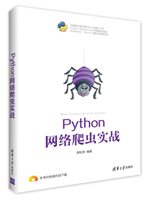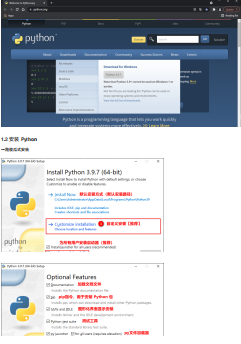给寻找编程代码教程的朋友们精选了java 多线程相关的编程文章,网友池芮悦根据主题投稿了本篇教程内容,涉及到java多线程打印两个数、java多线程交替打印、java多线程打印、java多线程交替打印两个数相关内容,已被498网友关注,相关难点技巧可以阅读下方的电子资料。
java多线程交替打印两个数
本文实例为大家分享了java实现多线程交替打印两个数的具体代码,供大家参考,具体内容如下
方法1、使用wait和notify
package com.thread;
public class T01 {
public static void main(String[] args) {
char[] char1 = "AAAAAA".toCharArray();
char[] char2 = "BBBBBB".toCharArray();
Object object = new Object();
Thread thread1 = new Thread(() -> {
synchronized(object){//使用notify和wait时,必须要选获取到锁
for (int i = 0; i < char1.length; i++) {
try {
System.out.print(char1[i]);
object.notify();
object.wait();
} catch (InterruptedException e) {
e.printStackTrace();
}
}
object.notify();//必须加上,否则程序无法结束,两个线程总有一个最后是wait状态,所以此处必须加
}
},"t1");
Thread thread2 = new Thread( () -> {
synchronized(object){
for (int i = 0; i < char2.length; i++) {
try {
System.out.print(char2[i]);
object.notify();
object.wait();
} catch (InterruptedException e) {
e.printStackTrace();
}
}
object.notify();
}
},"t2");
thread1.start();
thread2.start();
}
}
方法2、使用LockSupport方法
package com.thread;
import java.util.concurrent.locks.LockSupport;
public class T02 {
static Thread thread1 ;
static Thread thread2 ;
public static void main(String[] args) {
char[] char1 = "AAAAAA".toCharArray();
char[] char2 = "BBBBBB".toCharArray();
thread1 = new Thread(() -> {
for (int i = 0; i < char1.length; i++) {
System.out.print(char1[i]);
LockSupport.unpark(thread2);
LockSupport.park();
}
},"t1");
thread2 = new Thread(() -> {
for (int i = 0; i < char2.length; i++) {
LockSupport.park();
System.out.print(char2[i]);
LockSupport.unpark(thread1);
}
},"t2");
thread1.start();
thread2.start();
}
}
方法3、使用CAS自旋锁
package com.thread;
public class T03 {
enum ReadEnum{
T1,
T2;
}
static volatile ReadEnum r = ReadEnum.T1;
public static void main(String[] args) {
char[] char1 = "AAAAAA".toCharArray();
char[] char2 = "BBBBBB".toCharArray();
Thread thread1 = new Thread(() ->{
for (int i = 0; i < char1.length; i++) {
while (r != ReadEnum.T1) {
}
System.out.print(char1[i]);
r = ReadEnum.T2;
}
},"t1");
Thread thread2 = new Thread(() ->{
for (int i = 0; i < char2.length; i++) {
while (r != ReadEnum.T2) {
}
System.out.print(char2[i]);
r = ReadEnum.T1;
}
},"t2");
thread1.start();
thread2.start();
}
}
方法4、使用Condition方法
package com.thread;
import java.util.concurrent.locks.Condition;
import java.util.concurrent.locks.ReentrantLock;
public class T04 {
public static void main(String[] args) {
char[] char1 = "AAAAAA".toCharArray();
char[] char2 = "BBBBBB".toCharArray();
ReentrantLock lock = new ReentrantLock();
Condition condition1 = lock.newCondition();
Condition condition2 = lock.newCondition();
Thread thread1 = new Thread(() ->{
try {
lock.lock();
for (int i = 0; i < char1.length; i++) {
System.out.print(char1[i]);
condition2.signal();//唤醒线程2执行
condition1.await();//线程1等待
}
condition2.signal();
}catch (Exception e) {
e.printStackTrace();
}finally{
lock.unlock();
}
},"t1");
Thread thread2 = new Thread(() ->{
try {
lock.lock();
for (int i = 0; i < char2.length; i++) {
System.out.print(char2[i]);
condition1.signal();
condition2.await();
}
condition1.signal();
} catch (Exception e) {
e.printStackTrace();
}finally{
lock.unlock();
}
},"t2");
thread1.start();
thread2.start();
}
}
Condition与notify相比的好处是,Condition可以指定需要唤醒的线程,而notify是无法指定的,只能随机唤醒一个或者全唤醒(notifyAll)
以上就是本文的全部内容,希望对大家的学习有所帮助,也希望大家多多支持码农之家。












